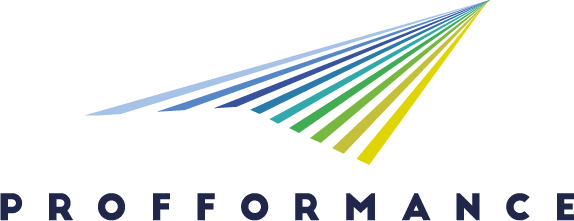V-LEAD-X
Virtual Learning Engagement and Academic Development through Exchange and Collaboration
- 04 – Business, administration and law
2. Innovative teaching and learning
- Student partnerships/engagement in the teaching and learning practice
- Online and offline cooperative and collaborative work – developing engaging dynamics in the learning process
- Innovative online and blended learning methods, engaging and participative hybrid learning organization
- Innovative multidisciplinary projects for students from different faculties
- Entrepreneurship projects, work-based learning
The V-LEAD-X project integrates a strong international component into two graduate courses at Faculty of Organization and Informatics, University of Zagreb (UNIZG FOI) within the Economics of Entrepreneurship program: Negotiating in the International Environment (NIE) and Strategic Human Resources Management (SHRM). NIE employs the COIL (Collaborative Online International Learning) methodology, promoting virtual collaboration across diverse cultural and national contexts. Students engage in projects aligned with Sustainable Development Goals such as Zero Hunger and Gender Equality, fostering intercultural competence, experiential learning, and adaptability while gaining skills essential for global workplaces. SHRM is built on work-based learning (WBL), enabling students to apply theoretical knowledge to real-world HR practices. By analyzing HR policies and cultural differences, students deepen their understanding of international HRM and learn how theory translates into practice. WBL fosters cross-cultural awareness and business insights, enhancing students' ability to navigate global environments. Courses implement innovative teaching methodologies, offering students international exposure and opportunities to develop key skills in intercultural communication, organization & self-management. Collaboration across time zones and cultures is facilitated by tools like Zoom, MS Teams enhancing digital skills. In initial phases, teachers provide key instructions, addressing challenges such as time management and task unfamiliarity while supporting students' cross-cultural engagement. The project simulates international teamwork without requiring physical travel, making it accessible for students lacking study-abroad opportunities. This approach aligns with the European Higher Education goals of inclusivity, quality education, and skill development. Through virtual collaboration and active learning, it prepares students for professional environments requiring adaptability and cultural awareness. Beyond the courses, students participate in activities like Student Research Symposium „Research Topics and Intercultural Learning in the International Context and Student Poster & Presentation Section at the CECIIS conference. These activities further develop research and intercultural skills, broadening the project's impact. V-LEAD-X enriches students’ academic and professional careers, fostering lifelong learning and readiness for global challenges.
Methodology
Tools, equipment, technology used
Outcomes and outputs, main results
Lessons learnt
Adaptability and sustainability of the best practice (for other institutions)
Promotion of best practice
Scope and impact
- Course/department level
- Faculty level
- Institutional level
- Cross-institutional level
- National level
- EU/EHEA/International level
6.1 Digitalization
- Outstanding, innovative, excellent practices of online / blended / hybrid learning
- Digital skills development and assessment both general and profession-related, embedded in course design, in teaching and assessment
- Novel digital solutions (tools, frameworks, devices, tasks to enhance efficiency and motivation)
Reasoning: Courses utilize novel digital tools such as MS Teams, Zoom, Google Drive, Dropbox for virtual team collaboration, communication and learning. Students use advanced tools such as Canva to create digital/visual artefacts that are part of the projects or assignments. It is important to emphasize that all course materials are digitized and students collaborate with international students in a completely virtual environment (see evidence in Appendix 6).
6.2 Internationalization
- Outstanding practices of international online collaborative learning
- Developing students' multicultural awareness
- Students engagement in international projects
- Courses implemented in international cooperation (projects, co-teaching, virtual/blended mobility, etc.)
- International projects/research results embedded into course development and T&L
Reasoning: The V-LEAD-X project uses COIL for virtual internationalization, connecting students from multiple countries to develop intercultural skills and global perspectives without physical mobility. WBL is applied to culturally diverse cases, enhancing critical thinking. Students work on real-world scenarios in virtual teams, using digital tools and communication strategies essential for global work environments. Teaching is adapted on both included sides. Outside of the course context, students are involved in the virtual exchange develop an interest to international research activities that take place in a virtual or physical environment. COIL enables cross-cultural teamwork and experiential learning in negotiation, while WBL bridges academia and industry through HRM case studies. Outcomes include the development of cross-cultural and intercultural competence, communication, English proficiency, digital skills, and problem-solving, which are vital for global citizenship and employability.
6.3 Inclusion and diversity, universal design
- Inclusive course design, universally designed divers activities to meet special students' needs
- Universally designed teaching material - adjustable for special needs
- Innovative teaching methodology for inclusion and meet diverse student needs
- Senzitivizing students to consider special needs when practicing their profession
- Course includes hints on how the services/products of the profession could be universally designed/inclusive
Reasoning: Inclusion and diversity are supported through extended exam times, accessible e-materials, and physical adjustments via the Office for Students with Disabilities. TRIO McNair Scholars from US, focused on underrepresented and first-generation doctoral students, enhance diversity. Institutional partnerships enable participation in the symposium and CECIIS, fostering global collaboration. International students in courses, CECIIS, and the symposium showcase diversity from Europe and the USA.
6.4 Sustainability
- Teaching material contains profession related sustainability aspects
Reasoning: In the NIE course, emphasis is placed on cultural topics, ensuring students approach issues from diverse perspectives (see Appendix 1) while collaborating virtually with international peers. Topics align with the UN Sustainable Development Goals (SDGs), focusing on Goal 2 – Zero Hunger, Goal 3 – Good Health and Wellbeing, Goal 4 – Quality Education, Goal 5 – Gender Equality, and Goal 13 – Climate Action. Students used these SDGs as a framework for creating project solutions (see Appendix 3).
3.3 Public contact datas
| Name | Email address | Website |
|---|---|---|
| Antonela Devčić | acizmesi@foi.unizg.hr | https://www.foi.unizg.hr/en/staff/antonela.cizmesija |

